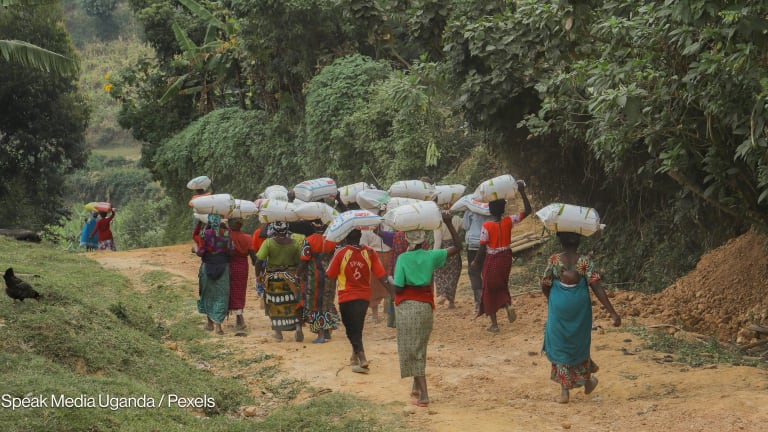
It has been a busy couple of years for the OECD’s Development Assistance Committee, the body in charge of determining what can and cannot be counted as “aid” to poor countries, or official development assistance. Major changes to aid have already been made during a year-long process of modernization of the ODA rules, but the biggest change in decades is yet to come.
This March, the DAC will decide on how to include what are known as private sector instruments in aid. This could mean a dramatic increase in the use of aid to invest in or give loans to private companies, or to agree to bail out failed private sector projects through guarantees.
Without strong safeguards and transparency standards there is a real risk that aid could be used as a backdoor subsidy for corporations with powerful lobbies in donor countries. If the new rules are badly written — and the OECD’s first proposal had major flaws, as civil society groups pointed out — they could also create strong incentives to shift aid away from social sectors such as education and health, in order to support commercial ventures. They could also focus aid more on emerging markets where donor companies eye profit-making opportunities, and take it away from the poorest and most fragile countries. Three important changes are needed if these risks are to be avoided.
First, the DAC must explicitly state in the new rules that aid that is "tied" to using companies in donor countries is not allowed. For example, the loans and guarantees rich countries give to support their exporting companies — known as export credits — should never be allowed to count as aid. This clear “no tied aid” statement would lower the incentive for donors to prioritize their commercial lobby interests over development and poverty reduction and ensure that development effectiveness principles are not forgotten. It is worth noting that this major concern about export credits has not come from the development community but from the agencies responsible for awarding the credits, which worry that the implicit subsidy provided by ODA would cause them trouble at the World Trade Organization.
Second, the DAC must get serious about tackling the major informal barriers that prevent aid agencies from using suppliers in developing countries. This “informal tying” helps explain why nearly three-quarters of U.K. aid contracts go to U.K. firms, for example. Many of these barriers have been set out by Eurodad and others and include basic things such as where calls for tenders are advertised and in which language. One simple way to ensure every penny of aid money has the maximum impact is to spend as much as possible in developing countries.
Informal barriers block small- and medium-sized suppliers in developing countries from winning aid contracts — a tragic waste of a simple opportunity to have bigger development impacts. The OECD DAC and its member states should seize this opportunity to convene a forum that includes developing countries, civil society organizations and the private sector with a simple task: to develop an action plan for removing these barriers and ensuring that a far higher share of development aid is spent through actors from the poorest countries.
Third, the rules need significant tightening in a number of areas, which civil society groups have detailed. For example, there is a high risk of aid being given to projects that are already commercially viable, which is why the rules need to ensure clear blue water between the subsidized private sector projects that might warrant aid and those that would go ahead anyway on commercial grounds. Risks of creating “phantom” aid — such as guarantees given by donor governments that are never used, and hence never result in any actual money being transferred — should also be tackled.
While the discussion is technical, it is clear that the real issues are highly political. This is why it is tragically short sighted that governments and civil society groups in developing countries have been excluded from the forums making this important decision. We know that seemingly technical aid rules can have a huge, often unforeseen, impact. For example, the OECD’s decision to allow some in-donor refugee costs to count as aid has recently led to some European countries becoming the largest recipients of their own aid. If the OECD wants to make sure that aid rules really help the poorest countries, they need to listen to these concerns, tighten the rules, and let the representatives of the poorest countries — those who will be most affected by the changes — have their say.
Read more international development news online, and subscribe to The Development Newswire to receive the latest from the world’s leading donors and decision-makers — emailed to you free every business day.









